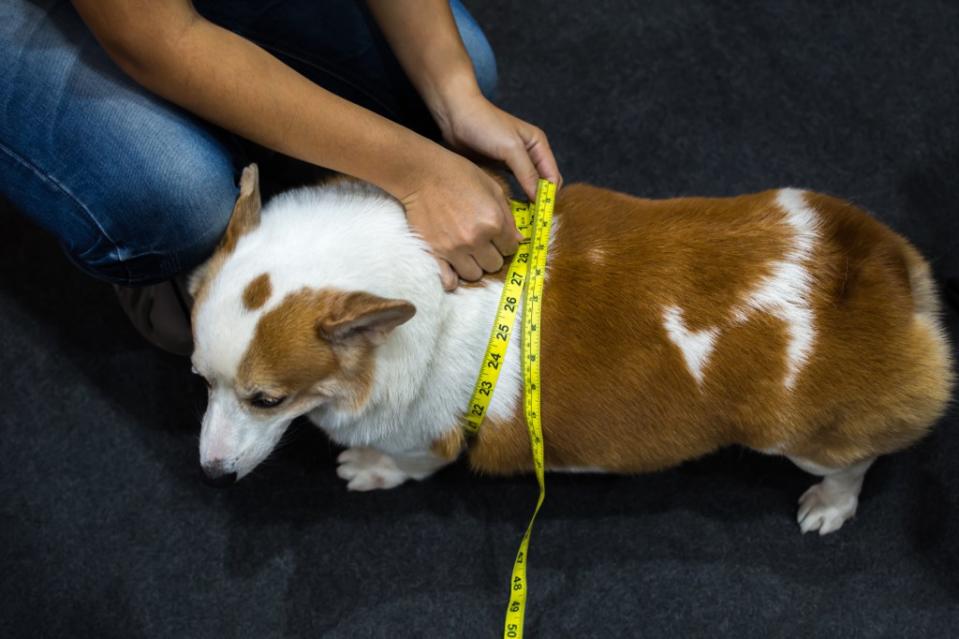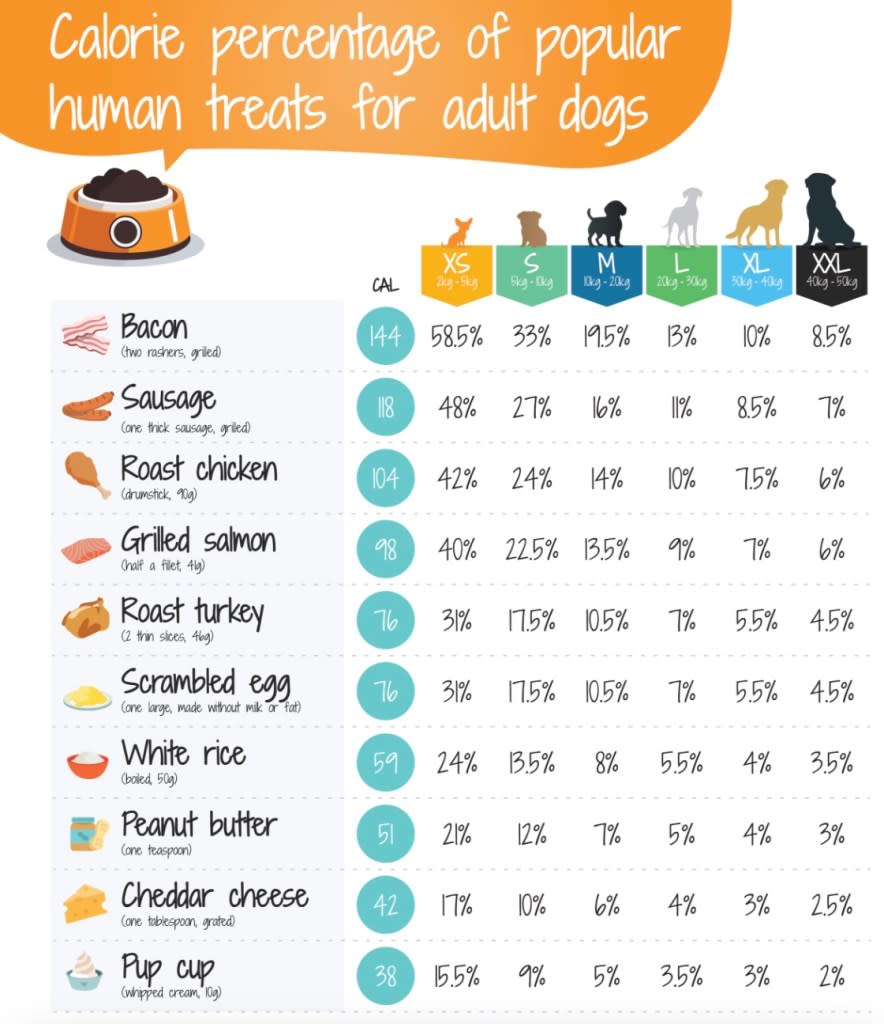These popular human foods that could be making your dog fat: study

You might want to be careful about what you’re feeding your dog under the table.
A new study by online store Pet Range has revealed the top human foods that could be making your dog fat.
Many pet owners will give their furry friends a human treat for being a good boy, but it’s not as often that they think about the impact of caloric intake.

“Most of us don’t realize just how calorie-dense our food can be for our pets,” Lisa Melvin, a company spokesperson, said in a blog post.
“This is especially the case for smaller dogs and breeds which are more obesity-prone, such as pugs. For small dogs like these, a single sausage can take up almost half of their daily recommended calorie intake.”
The Association for Pet Obesity Prevention reports that more than 50% of dogs in North America are overweight, according to VCA Animal Hospitals.
While not all human food is necessarily bad or unsafe for our pets, it’s often not provided in moderation, leading to overeating without even realizing it — just like humans.
Naturally, how each food affects your dog also depends on the pooch’s size.
An extra small dog, such as a chihuahua, is categorized as 2 to 5 kilograms (4.4 to 11 pounds); a small dog like a pug is 5 to 10 kilograms (11to 22 pounds); a medium dog like a beagle is 10 to 20 kilograms (22 to 44 pounds); a large dog, such as a dalmatian, is 20 to 30 kilograms (44 to 66 pounds); an extra large dog like a labrador retriever is 30 to 40 kilograms (66 to 88 pounds); and an extra-extra large pup like a rottweiler is 40 to 50 kilograms (88 to 110 pounds).
The recommended daily calorie range is 165 to 328 for an XS dog, 328 to 551 for small, 551 to 927 for medium, 927 to 1,256 for large, 1,256 to 1,559 for XL and 1,559 to 1,843 for XXL.

One of the most common treats we feed our dogs is leftover meat, and that can amount to a large portion of their daily recommended calorie intake.
For example, if you were to give two pieces of bacon to an extra small adult dog, it would be about 58.5% of their daily recommended calorie intake. For a small dog, it would be about a third, medium dogs a fifth, and for very large dogs it would be 8.5% of their daily calorie recommendation.
Sausages and roast chicken can also take up a lot of our four-legged friends’ daily calories, but it’s not just meat that can pose a risk for obesity.
Just one egg can be 31% of an XS dog’s calories, though it’s just 4% for an XL dog. The lowest calorie human treat that Pet Range has on their list is a 10-gram whipped cream pup cup, even if it does take up just under a 10th of a small dog’s daily intake.

Since obesity can be hard to manage in dogs, it’s important to take note of what human foods you’re feeding your pup without thinking about it.
Melvin shared that obesity can have a “huge toll” on your pet with the potential of issues with bone health, heart health and simply overall well-being.
“It’s not surprising that obesity can have such a big impact on a dog’s health, but many of us don’t realize just how many conditions can be linked to having excess weight,” she said.
Melvin advised making sure your pets have filling, balanced meals and have their food in moderation — and cutting back on human food for treats can make a big difference, too.
“It’s important to note that it’s always a good idea to see a vet if you have concerns about your pet’s weight,” she said.
“Every dog is different, and just like humans, they all have different nutritional needs. Whether your furry friend is a puppy or fully grown, consult with the vet before making major dietary changes.”

